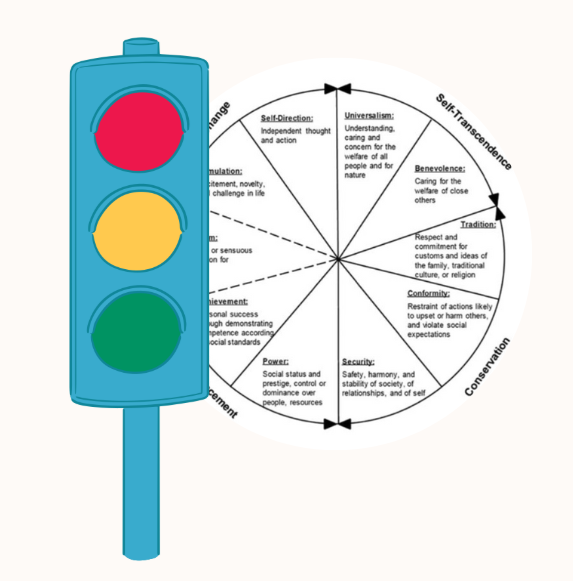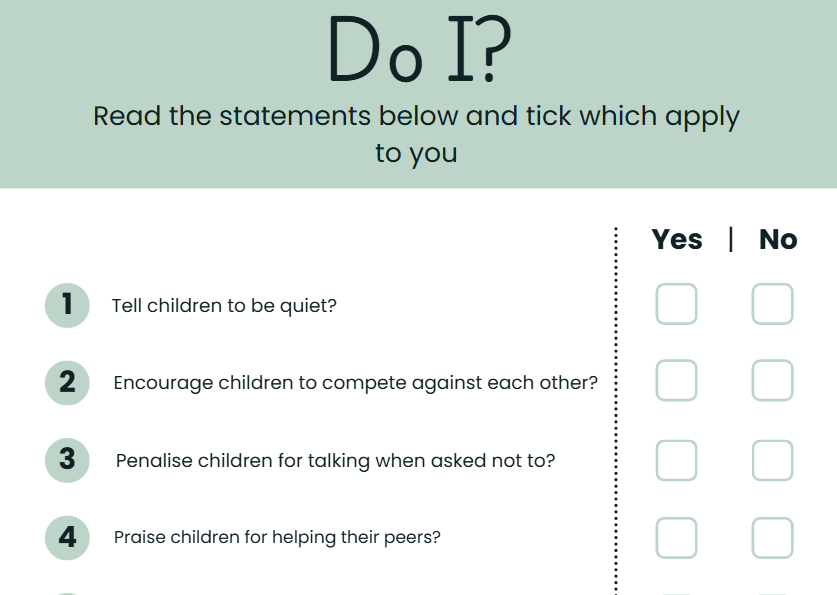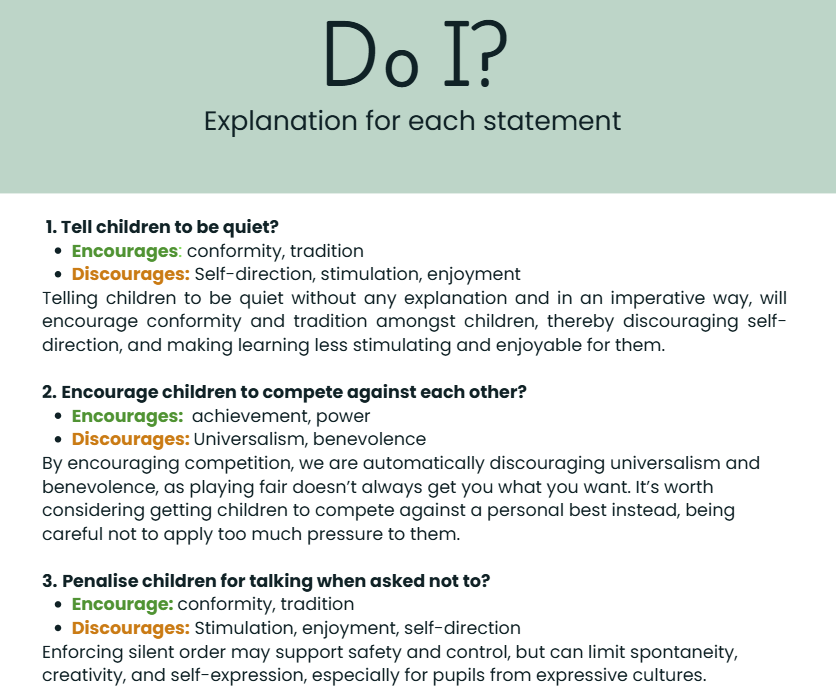As educators, it is important to reflect on our own values and behaviours, and be aware of these and their impact in the classroom. Below are some activities to help you do this.

Reflect on your own values and behaviours:

Do I? Activity
This activity includes a list of behaviours for teachers to reflect on. Below are the questions, Do I…
| Tell children to be quiet? |
| Encourage children to compete against each other? |
| Penalise children for talking when asked not to? |
| Praise children for helping their peers? |
| Use classroom rules that apply equally to all? |
| Treat emotional expression (e.g. crying) as disruptive? |
| Reward (e.g. with stickers or points) good behaviour? |
| Expect children to sit still for long periods? |
| Ask children to follow the same routine every day? |
| Celebrate ‘top performers’ in front of the class? |
| Ask children to work in groups? |


Explanations:
1. Tell children to be quiet?
- Encourages: conformity, tradition
- Discourages: Self-direction, stimulation, enjoyment
Telling children to be quiet without any explanation and in an imperative way, will encourage conformity and tradition amongst children, thereby discouraging self-direction, and making learning less stimulating and enjoyable for them.
2. Encourage children to compete against each other?
- Encourages: achievement, power
- Discourages: Universalism, benevolence
By encouraging competition, we are automatically discouraging universalism and benevolence, as playing fair doesn’t always get you what you want. It’s worth considering getting children to compete against a personal best instead, being careful not to apply too much pressure to them.
3. Penalise children for talking when asked not to?
- Encourage: conformity, tradition
- Discourages: Stimulation, enjoyment, self-direction
Enforcing silent order may support safety and control, but can limit spontaneity, creativity, and self-expression, especially for pupils from expressive cultures.
4. Praise children for helping their peers?
- Encourages: benevolence, universalism
- Discourages: achievement, power
Highlighting collaboration over competition supports prosocial values, a strong predictor of belonging and emotional adjustment in international pupils.
5. Use classroom rules that apply equally to all?
- Encourages: security, conformity, tradition
- Discourages: self-direction, benevolence (context-sensitive kindness)
Strict consistency may unintentionally suppress empathy and flexibility, which are often valued more in collectivist or relational cultures.
6. Treat emotional expression (e.g. crying) as disruptive?
- Encourages: security, conformity
- Discourages: benevolence, universalism, self-direction
Suppressing emotions can unintentionally communicate that emotions are unwelcome, especially harming pupils from emotionally expressive cultures.
7. Reward (e.g. with stickers or points) good behaviour?
- Encourages: conformity, achievement, power
- Discourages: self-direction, benevolence
Rewards can train children to behave for approval, rather than learning to make kind or thoughtful choices for themselves.
8. Expect children to sit still for long periods?
- Encourages: security, conformity
- Discourages: stimulation, self-direction
Some children and cultures value movement and active learning. Long sitting can restrict energy, curiosity, and creativity.
9. Ask children to follow the same routine every day?
- Encourages: security, tradition, conformity
- Discourages: stimulation, self-direction, hedonism/enjoyment
Routines help some children feel safe, but may limit flexibility and surprise, which are motivating for others.
10. Celebrate ‘top performers’ in front of the class?
- Encourages: achievement, power
- Discourages: benevolence, equality, self-acceptance
Public praise for top results can motivate some but discourage others, especially in cultures that value humility and group success. Promoting achievement will also discourage fair play and thereby benevolence values.
11. Ask children to work in groups?
- Encourages: universalism, benevolence
- Discourages: achievement, power
Asking children to work in groups is great for fostering respect and benevolence, and keeping children’s minds open, but will thereby discourage children from competing and striving for accomplishment.

